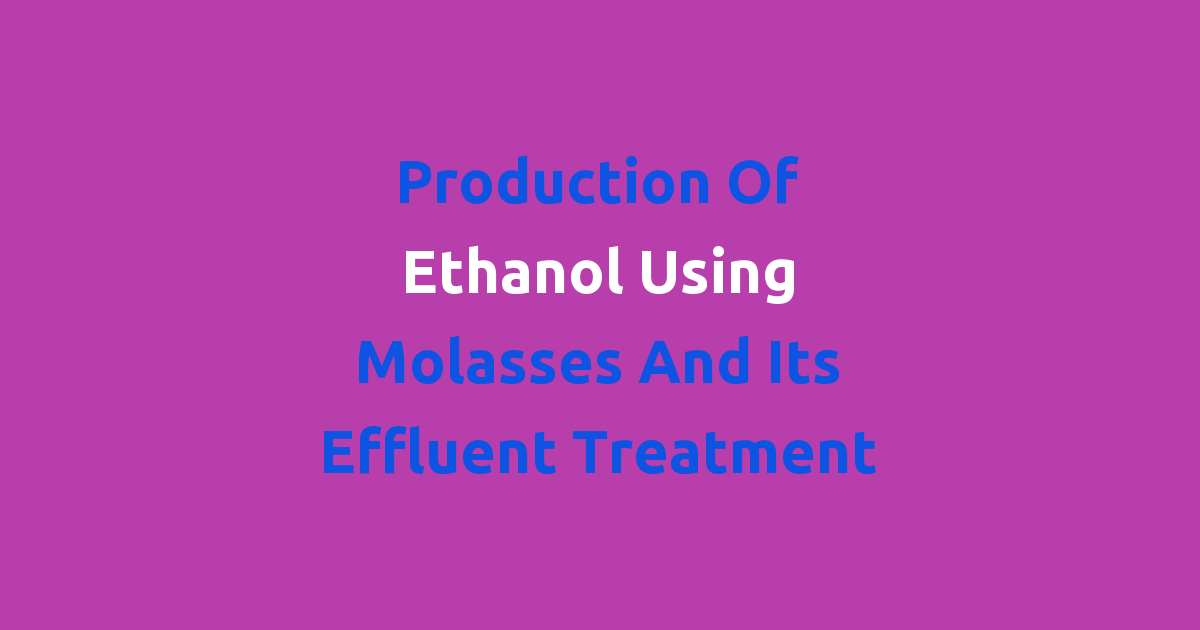Ethanol production from molasses and the treatment of its effluent.
Production of Ethanol Using Molasses and Its Effluent Treatment
Introduction
The production of ethanol using molasses is a widely used process in the biofuel industry due to its cost-effectiveness and efficiency. Molasses, a byproduct of the sugar industry, is a rich source of sugar which can be converted into ethanol through fermentation. This process helps in reducing the dependence on fossil fuels and contributes to the sustainability of the environment.
Problem Statement
Despite the numerous benefits of producing ethanol from molasses, there are certain challenges associated with this process. One of the major issues is the treatment of effluents generated during the ethanol production process. These effluents contain high levels of organic matter, which if not treated properly, can pollute the environment and pose a threat to human health.
Existing System
In the existing system, the effluents generated during the ethanol production process are usually treated using conventional methods such as physical and chemical treatments. While these methods are effective to some extent, they are not environmentally friendly and can lead to the generation of toxic byproducts. Moreover, the efficiency of these methods in treating high organic content effluents is limited.
Disadvantages
– Conventional effluent treatment methods are not environmentally friendly
– Generation of toxic byproducts during the treatment process
– Limited efficiency in treating high organic content effluents
– High operating costs associated with the existing system
– Risk of environmental pollution and health hazards
Proposed System
To address the limitations of the existing system, we propose a novel effluent treatment system that combines biological and advanced oxidation processes. In this system, the effluents generated during the ethanol production process will be treated using a series of biological reactors followed by advanced oxidation processes such as ozonation or UV irradiation. This hybrid approach will not only enhance the efficiency of effluent treatment but also minimize the generation of toxic byproducts.
Advantages
– Environmentally friendly effluent treatment system
– Enhanced efficiency in treating high organic content effluents
– Minimized generation of toxic byproducts
– Lower operating costs compared to the existing system
– Reduced risk of environmental pollution and health hazards
Features
Our proposed effluent treatment system consists of the following key features:
– Biological reactors for the degradation of organic matter
– Advanced oxidation processes for the removal of remaining contaminants
– Monitoring and control systems for optimizing process parameters
– Effluent recycling system for reducing water consumption
– Online sensors for real-time monitoring of effluent quality
Conclusion
In conclusion, the production of ethanol using molasses is a sustainable and cost-effective process that can help in reducing the dependence on fossil fuels. However, the treatment of effluents generated during this process is a critical issue that needs to be addressed. Our proposed effluent treatment system offers a novel approach to treating high organic content effluents efficiently and environmentally friendly manner. By implementing this system, we can ensure the long-term sustainability of the ethanol production process and minimize its environmental impact.

